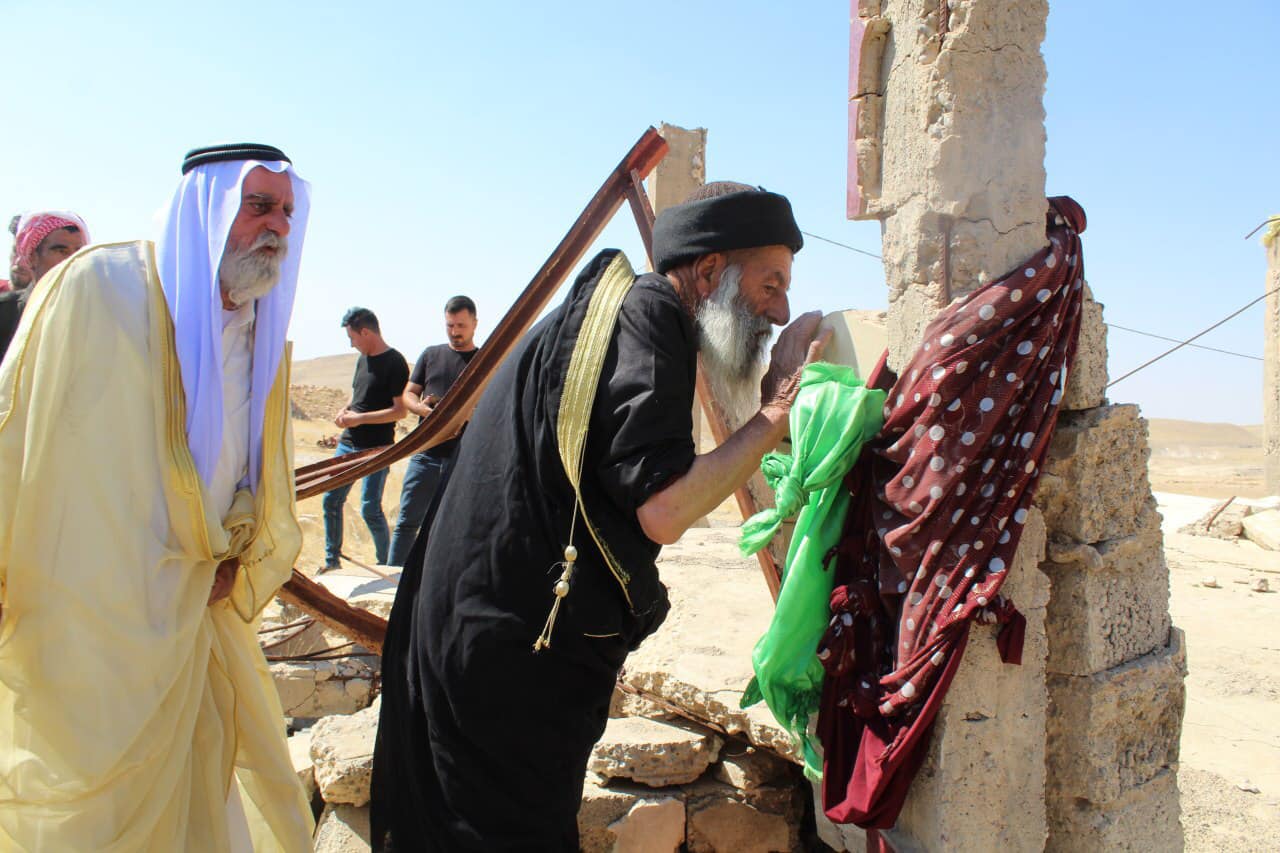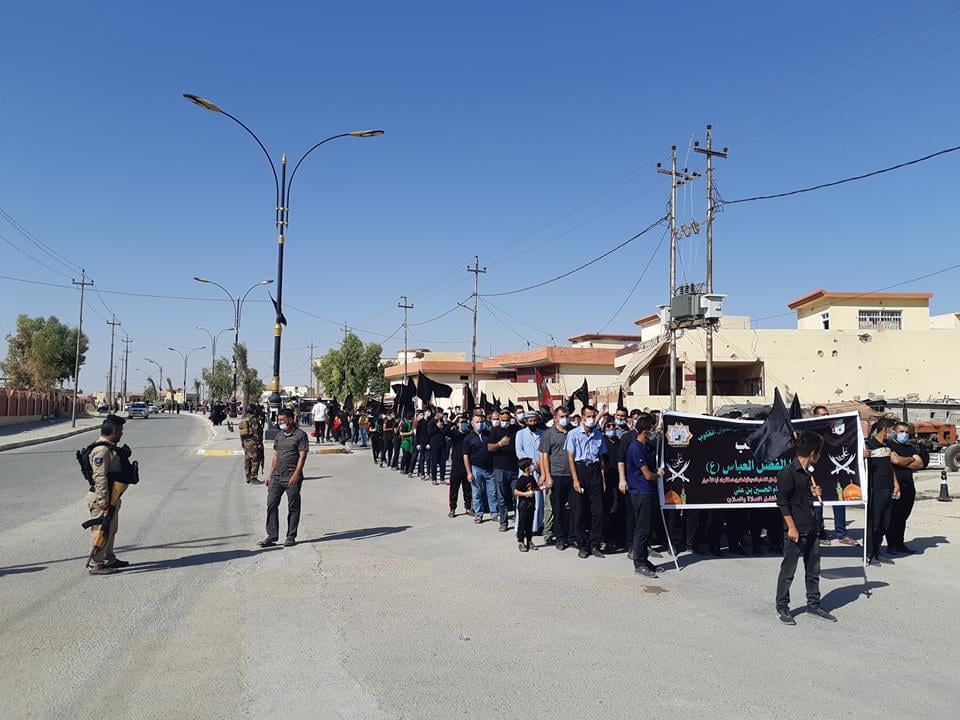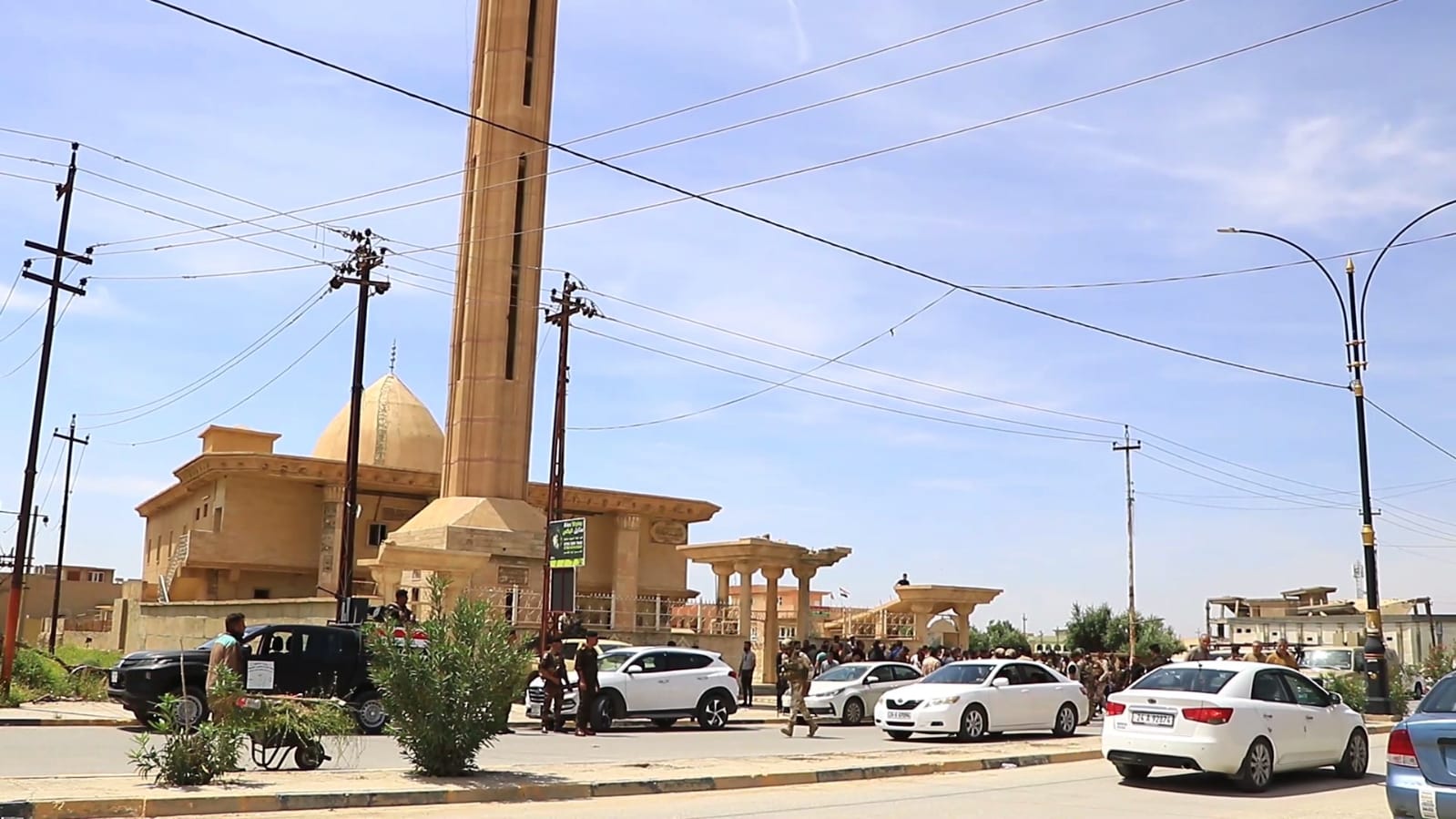The religious components in the multi-ethnic district of Shingal (Sinjar), Ninewa province, find themselves facing a pending problem represented by the issue of the return of some Sunni Arab families who were displaced from their homes in the center of the war-torn district in 2014, an issue caused by the extremist militants of the so-called Islamic State of Iraq and Syria ISIS and not addressed despite its defeat.
The content of the problem is that some of the Ezidis (Ezidis) of Sinjar reject the return of part of the Sunni Arabs and accuse them of collaborating with ISIS militants after it took control of the district on August 3, 2014, as a result of which thousands of Ezidis were killed, kidnapped, enslaved and displaced.
However, the representatives of the Sunni Arabs in the region, including the Sunni Endowment, believe that the approach of some Ezidis - even if it is correct - should not be generalized to all Sunni Arabs, expressing their readiness to deal according to the law with every person who aided ISIS or was involved in killing, kidnapping or displacement of the Ezidis.
Ismail Saleh, the head of the Sunni Endowment in Sinjar, told KirkukNow, “The Ezidis say that they do not want the Sunni Arabs to return, but the reality indicates the opposite. They are preventing them from returning.”
To prove his words, Saleh said, "My house is in the center of Sinjar district. Following ISIS attack, I can't go back now... Some of the Ezidis have taken over the homes and shops of Arabs and use them.
“They consider our homes to be theirs, while those homes and shops are officially registered in the name of Sunni Arabs... We have repeatedly tried to solve this problem, but to no avail," he elaborated.
However, the acting district commissioner, Jalal Khalaf, who is from the Ezidi religious component, said, "There is incorrect information and statements made about this issue. There fact is that we will definitely not accept the return of people who cooperated with Daesh to Shingal, but those who did not have links with them, nobody stands in the way of their return."
"We have a list of names of collaborators with Daesh, and everyone who was in Shingal knows who they are who cooperated with them," he added
Khalaf, who spoke to (KirkukNow) in the capacity of the Shingal administration, said, "We are working according to the instructions for the return of the (internally) displaced (Persons IDPs). If the security committee does not have observations about the return of a specific person, we will not object to his return."
There are several armed groups in Shingal, some of which are part of the Western Ninewa Operations Command, an umbrella for the Iraqi Security Forces ISF including the Iraqi army.
In the Ezidi-dominant region of Shingal, only three thousand square kilometers, Baghdad federal and Erbil regional governments compete to establish their rule: three local administrations want to administer the district, and eight different armed groups are deployed.
The militant groups are the pro-Iran Shiite paramilitary of Popular Mobilization Forces PMF, Shingal Resistance Units YBS (YBSh) and Ezidkhan Asayish which are affiliated to Kurdistan Wrokers Party PKK, federal and local Police, Iraqi army and the Kurdistan Regional Government's KRG Peshmerga.

On April 27, 2023, for the first time after ISIS’s attack on Sinjar district, 15 Sunni Arab families returned to the center of the district, and their return resulted in tension and clashes between the returning IDPs, a section of the district’s Ezidis in front of Al-Rahman Mosque in the center of Shingal, followed by contradictory statements and the spread of misleading information on the issue of "burning the mosque", without the mosque having been exposed to something like that.
After tension arose, Arab (Sunni) families returned once again to Mosul, the center of Nineveh province.
According to the statistics of the Sunni Endowment, the Yezidis constituted 40% of the district's population, and the rest consisted of Sunni and Shiite Arabs, Turkmens and Christians.
In all, the residents of 25 villages on the Syrian border inhabited by Sunni Arabs have returned without any problems, in addition to the residents of 20 other villages located within the borders of the Qairawan sub-district of Shingal.
Ezidism is an old Middle Eastern monotheistic ethnic religion and is based on belief in one God who created the world and entrusted it into the care of seven Holy Beings, known as Angels. The outstanding among these angels is Melek Taus (Peacock the King) who is the leader and has authority over the world.
Most Ezidis speak Kurmanji, one of the two main Kurdish dialects, however, most Ezidis consider Ezidism a religious rather than an ethnic identity.
The official of the Sunni Endowment in Sinjar said, "The problem is in the center of Sinjar. Most of the Ezidis have returned, in addition to 20 Kurdish Muslim families and 150 Shiite families, while no Sunni Arab family has returned."
Ezidis who reside houses belong to Sunni Arabs, pay monthly rents to the landlords
About the events that took place in front of the Al-Rahman Mosque and the 15 Sunni Arab families being forced to flee again, Khalaf said, "These Arabs who came to Shingal during the events of the Al-Rahman Mosque wanted to conspire against the Ezidis. Regarding takeover of houses of Sunni Arabs, the situation is not so chaotic that he is talking about.”
Seized in August 2014 by IS militants whom accused the non-Muslim Ezidis of being “heretics,” Shingal has been the scene of tragedy: a genocidal campaign of killings, rape, abductions and enslavement, mounted to genocide.
Shingal, on the Iraq-Syria borders, is home to over 80 mass graves and tens of individual graves for Ezidis slaughtered at the hands of the extremist militants of IS. According to KRG figures, out of 550,000 Ezidis, 360,000 were displaced, 160,000 back to Shingal, and 100,000 migrated abroad. The rest are still living under tents in IDP camps of adjacent Duhok Northern province due to lack of reconstruction and stability in their war-torn region.
Ahmed Attia, one of the displaced people who returned, told KirkukNow at the time, “The security situation in the town is stable. Shingal is a miniature Iraq in which all religions, sects and ethnicities live. We are all brothers and we will restore coexistence in it... We are tired of life in displacement, so we decided to come back."
Adla Bakr, an Ezidi activist in Sinjar who currently lives in the district center, says that the people of Shingal are not against the return of any religious or ethnic component. All religious components have the right to return and live in their homes, but what the people stress is that those who cooperated with Daesh have no right to return and must be prosecuted and punished."

Subhi Elias, the representative of the Shiite endowment in Sinjar, believes that the best solution is not to allow anyone to return to Shingal without submitting to the scrutiny of the security services.
"Currently there are five Sunni families living in Shingal. Ezidis who reside houses belong to Sunni Arabs, pay monthly rents to the landlords, it is unfair to publish false information like this,” Elias commented on the statement by the Sunni Endowment official in Shingal.
An official source in the 20th Division of the Iraqi army, which handles the security file in the district, anonymously stressed that any IDP of any ethnicity or sect who wishes to return to Shingal must apply to get a return permit, "then if we do not have any objection, he can return to his home peacefully."
"The restrictions and instructions include everyone without discrimination, and the displaced person can return to his home after passing the security check," he explained.
The Sunni Arabs want Baghdad to interfere in order to put an end to the pending threatening bomb.
"The security services know very well who cooperated with Daesh and who did not so it is not necessary for others to accuse all Sunnis without evidence," official of the Sunni Endowment in Shingal says.
"The best solution is to form a government committee to decide on who cooperated with Daesh and who didn’t because Shingal does not belong to one component, rather it belongs to all components.”





